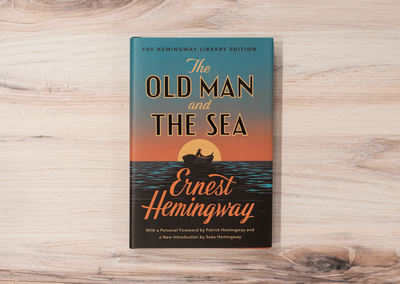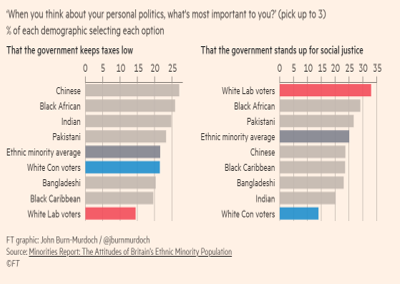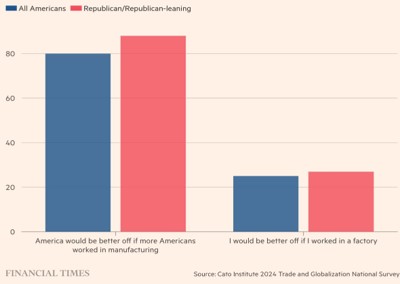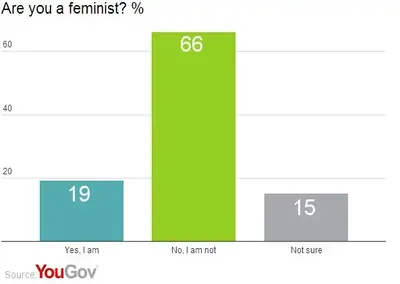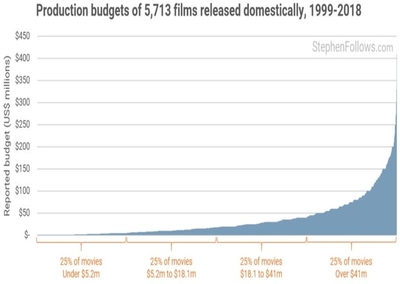When asked about the symbolism in his novella ‘The Old Man and the Sea’, Ernest Hemingway simply said this: “Then there is the other secret. There isn’t any symbolysm [sic]. The sea is the sea. The old man is an old man. The boy is a boy and the fish is a fish. The shark are all sharks no better and no worse. All the symbolism that people say is shit.”
All Threads
The foam that forms on top of espresso was originally called ‘scum’, and was thought to be a bad byproduct of making coffee. So manufacturer Gaggia marketed it as ‘crema’ to make it sound more desirable.
Demographics are useful when used correctly, but they’re often too vague to be meaningful. A simple ‘Asian’ grouping misses key nuances in the political sphere, like the fact that Chinese voters are significantly more likely than Bangladeshi voters to value low taxes.
According to EU law, all members must keep their budget deficit to within 3% of GDP. You’d think this was based on sophisticated modelling and forecasting, but actually Guy Abeille, then a senior Budget Ministry official, came up with the figure in less than an hour. As he explains, he needed “an easy rule that he could deploy in his discussions with ministers who kept coming into his office to demand money.” And luckily for him the number 3 was “somewhat reminiscent of the Trinity.”
With 3 billion users, almost half the planet is on Facebook. But its original target audience was very niche: it exclusively targeted Harvard students, before slowly expanding to other colleges across the US.
According to the head of policy at human rights organisation Liberty, facial recognition is a “deeply invasive breach of our privacy rights” when it’s used by the police. But billions of people use it to unlock their smartphones every day.
The vast majority of Americans agree the country would be better off if more people worked in manufacturing. But it’s less clear who those people should be – only 25% of Americans agree it would be better if they did.
Political disinformation is frequently blamed for election results, but its impact is highly concentrated. Researchers examined Twitter behaviour during the 2016 US election and concluded that “only 1% of individuals accounted for 80% of fake news source exposures… who were conservative leaning, older, and highly engaged with political news.” Basically, fake news reached a tiny minority of users, most of whom probably had their minds made up before going on Twitter.
A fear of heights doesn’t just change our emotions – it changes our perceptions. People who are scared of heights will, quite literally, see the same height as larger than those who aren’t.
Not all labels are positive. Only 19% of the public identify as feminists, but 81% believe women should be treated as equal in every way.
Ferrari is worth $90 billion, and the most valuable car company in Europe, precisely because it makes the product hard to buy. When Ferrari revealed its new $3.7 million ‘hypercar’ in 2024, it announced it wouldn’t be available for sale. Instead, it promised the car to a select group of 800 dedicated customers who already owned a Ferrari (note: the company only sells 14,000 per year).
Fiat recently made the bold decision to stop selling grey cars. CEO Olivier Francois said this was “reinforcing Fiat’s leadership as the brand of joy, colours and optimism.” The strategy doesn’t come without its risks, with grey being the most popular colour for new cars in many of Fiat’s most important markets. But a strengthened commitment to the brand’s vibrant Italian roots will help it to resonate with customers looking for a more exciting choice of car.
In the U.S Air Force during WWII, less than 1% of fighter pilots were responsible for 40% of the planes shot down.
Between 1999 and 2018, half of all movies released in US cinemas cost under $18 million to make. At the other end of the scale, a rare few cost over $350 million, such as Pirates of the Caribbean On Stranger Tides and Avengers Endgame. So the answer to the question – how much does a film cost to make? – is that it depends.
David Fincher shoots upwards of 70 takes for certain scenes, insisting that actors require to loosen up and get into character. Meanwhile Clint Eastwood tries to use only one take per scene, trusting his cast and his crew to provide what they’ve been hired to provide. Neither technique is objectively better or worse – they just suit different needs. After all, both directors are celebrated Oscar winners.

